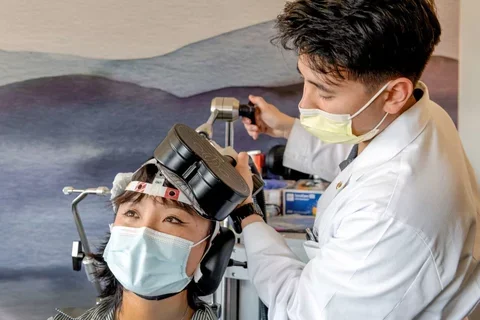Can brain stimulation help those struggling to recover from concussion?
The UCLA Health study tests attempts to reset a brain circuit that may be overactive.

A novel UCLA Health study is seeking to modify a particular brain circuit that appears over-sensitized in people who experience chronic symptoms after a concussion.
Kevin Bickart, MD, PhD, an assistant professor in neurology at UCLA’s David Geffen School of Medicine and BrainSPORT Program, said the study is testing personalized brain stimulation to reset a brain circuit that may be overactive in people who don’t fully recover within weeks after a concussion.
Maladaptation of the circuit, which can be seen on an MRI, may be preventing the brain from eliminating fears about returning fully to pre-injury levels of activity and resolving symptoms, he said. As a result, people avoid certain everyday activities that may trigger headaches, dizziness, sensitivity to light, brain fog and depression or anxiety.
“It is important as a public health concern to lessen the burden and cost of chronic concussion symptoms,” said Dr. Bickart, who is principal investigator. “It’s been hard to even diagnose, let alone find targets for treatment of this condition.”
Dr. Bickart’s team of researchers are targeting the circuit through non-invasive brain stimulation. They are also asking participants to play a very personal role in the research by discussing their deepest fears about how their symptoms could interfere with their hopes and dreams.
Participants then listen to recordings of themselves contemplating their worries before the brain stimulation in order to further activate and target the circuit that may be responsible for their lingering symptoms.
“It’s actually become to me one of the most interesting and potentially rewarding parts of the experience,” Dr. Bickart said, noting that, for some people, the recording can serve as a form of exposure therapy that helps neutralize their fears. “My hope is that when combining stimulation with the recording, participants will re-engage more fully in the activities they enjoy most, and in their lives overall.”
Read full article article: Can brain stimulation help those struggling to recover from concussion?